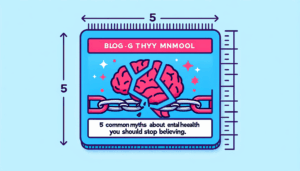In today’s fast-paced world, where stress and anxiety are prevalent, finding effective ways to manage our emotional well-being is crucial. One powerful tool that has gained recognition for its therapeutic benefits is journaling. This simple act of putting pen to paper can enhance self-awareness, reduce stress, and foster emotional resilience. In this blog, we will explore how journaling can be an invaluable practice for improving emotional well-being and provide practical tips on how to start your journaling journey.

The Benefits of Journaling
Before diving into how to journal, let’s first look at some of the key benefits this practice offers:
1. Emotional Release: Journaling provides a safe space to express emotions that may be difficult to articulate verbally. Writing down feelings can help release pent-up emotions, leading to a sense of relief and clarity.
2. Increased Self-Awareness: Regular journaling encourages reflection, helping individuals become more aware of their thoughts, feelings, and behaviors. This heightened self-awareness can lead to personal growth and improved emotional regulation.
3. Stress Reduction: The act of writing can be meditative, allowing individuals to unwind and process their experiences. Journaling can also serve as a coping mechanism during stressful times, providing a constructive outlet for frustration and anxiety.
4. Problem Solving: Journaling can help clarify thoughts and feelings, making it easier to navigate challenges. By writing about problems, individuals can explore different perspectives and potential solutions, enhancing their problem-solving skills.
5. Goal Setting and Tracking: Journaling isn’t just about expressing emotions; it can also be a powerful tool for setting and tracking personal goals. Writing down aspirations and reflecting on progress can boost motivation and accountability.
Getting Started with Journaling
If you’re new to journaling, the process may seem daunting at first. However, it doesn’t have to be complicated. Here are some practical steps to help you get started:
1. Choose Your Medium
Decide whether you prefer a physical notebook or a digital platform. A beautiful notebook and pen can make the experience more enjoyable, while digital options (like apps or word processors) offer convenience. Choose what feels right for you.
2. Set a Routine
Consistency is key to reaping the benefits of journaling. Aim to set aside a specific time each day or week for journaling. Whether it’s in the morning to set intentions or at night to reflect, find a routine that works for your lifestyle.
3. Find Your Focus
Journaling doesn’t have to follow a strict format. Here are a few prompts to get you started:
– Daily Reflection: Write about your day, focusing on what went well and what challenges you faced.
– Gratitude Lists: List three things you are grateful for each day to shift your focus toward positivity.
– Emotional Check-ins: Take note of your current emotions and explore the reasons behind them.
– Stream of Consciousness: Write freely for a set period (e.g., 10 minutes) without worrying about grammar or structure.
4. Be Honest and Authentic
Your journal is a private space, so allow yourself to be completely honest. Write without fear of judgment, expressing your true feelings and thoughts. This authenticity is crucial for emotional exploration and growth.
5. Explore Different Styles
Experiment with various journaling styles to see what resonates with you. Some options include:
– Bullet Journaling: A structured approach that combines journaling with planning and tracking.
– Art Journaling: Incorporating drawings, sketches, or collages alongside writing for a more creative expression.
– Prompt Journaling: Using specific prompts or questions to guide your writing.
Overcoming Common Barriers
While journaling has many benefits, some people may encounter barriers that prevent them from starting or maintaining the practice. Here are some common challenges and tips to overcome them:
– Time Constraints: If you feel too busy, start with just a few minutes a day. Even a short entry can be impactful.
– Writer’s Block: Don’t worry about perfection. If you’re stuck, consider using prompts or jotting down random thoughts until the flow returns.
– Fear of Judgment: Remember that your journal is for your eyes only. Embrace vulnerability and let go of concerns about how your writing sounds.
Making Journaling a Habit
To truly benefit from journaling, it’s essential to make it a regular habit. Here are some strategies to help:
1. Set Reminders: Use alarms or calendar notifications to remind you to journal.
2. Create a Dedicated Space: Designate a comfortable area for journaling, making it inviting and conducive to reflection.
3. Pair It with Another Habit: Combine journaling with an existing routine, such as enjoying a cup of tea or winding down before bed.
4. Review Your Entries: Periodically read through past journal entries to gain insights, track your progress, and celebrate your growth.
Conclusion
Journaling can be a transformative practice for enhancing emotional well-being. By providing a space for self-expression, reflection, and growth, it empowers individuals to navigate their emotions and experiences more effectively. Whether you’re looking to release stress, gain clarity, or foster gratitude, the simple act of journaling can make a profound difference in your emotional health. So grab a pen and paper, and start your journey toward greater emotional well-being today!
AI-Assisted Content Disclaimer
This article was created with AI assistance and reviewed by a human for accuracy and clarity.





Leave a Reply